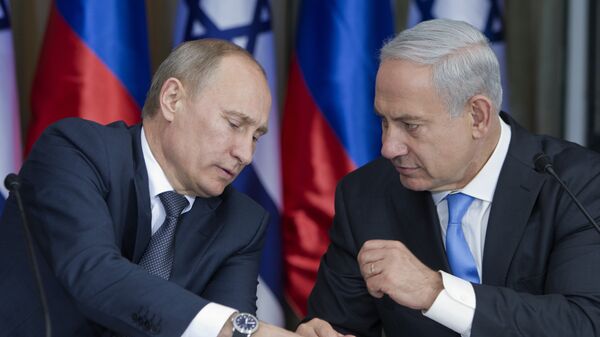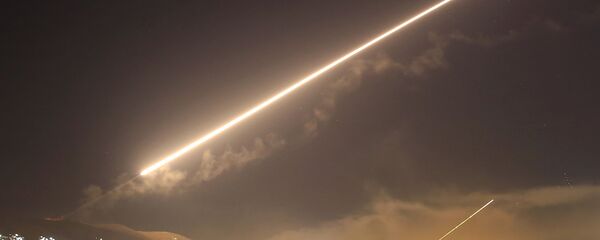A series of leaked diplomatic cables obtained by the New York Times include a document pertaining to Slovakia's explanation of Israel's views on Iran, Russia, Syria and the EU's treatment of Israel and the Israeli-Palestinian conflict, according to Haaretz.
The cable, which dates back to June 2018, underscores Slovakia's desire to notify its partners of consultations between Political Director of the Ministry of Foreign and European Affairs of the Slovak Republic Marian Jakubocy and his Israeli counterpart Alon Ushpiz.
READ MORE: Iran Accuses Israel of Seeking to Divide Muslim States as Netanyahu Visits Oman
Touching upon Syria and Iran, the cable cited the Israeli side as saying that "Iran's main interest is to create land corridor to Lebanon in order to transfer military technology/capabilities and equipment to [the Lebanon-based militant group] Hezbollah."
According to the cable, Ushpiz concluded that "the situation in Syria would have been even more complex without the Russian presence" and that "Israel recognises changes in Russian's perception of Iran."
While claiming that "Iranian activities in Syria are seen by Russia as spoilers to stability", the cable quotes the Israeli political director as saying that "Russia and Israel reached a point where both accept their interests in Syria."
READ MORE: Iran Slams Netanyahu: Israel Only State in Our Region With Secret Nuke Program
Tel Aviv regularly conducts air raids on Syrian territory, claiming that it targets Iranian military depots and arms supplies destined for Hezbollah.
Tehran has strongly and repeatedly denied the accusations, insisting that only military advisers, invited by Damascus, are present in Syria. Iran has also denied supplying armaments to Hezbollah's military wing and has strongly condemned the Israeli airstrikes against the Arab Republic.
The New York Times leaks come as Israeli Prime Minister Benjamin Netanyahu said earlier on Wednesday that ahead of the upcoming UN Security Council meeting, he asked Russia to condemn Hezbollah actions.
READ MORE: US to Reject UN Resolution Calling on Israel to Return Golan Heights to Syria
"I […] spoke with Russian President Vladimir Putin on the eve of this meeting and asked Russia to take the right position [on the matter], namely, to condemn Hezbollah rather than support them or remain neutral", Netanyahu pointed out.
He recalled that on Thursday, the UN Security Council will discuss the Hezbollah attack tunnels crossing from Lebanon into Israel, something that the Jewish state is trying to destroy.
Russian Deputy Foreign Minister Mikhail Bogdanov, for his part, told reporters back in 2015 that Moscow maintains relations with Hezbollah because "we do not consider them [to be] a terrorist organisation".
"They have never committed any terrorist acts on Russian territory. Hezbollah was elected by people to the Lebanese parliament. There are cabinet members and ministers who are from Hezbollah in Lebanon. It's a legitimate socio-political force", he stressed.



